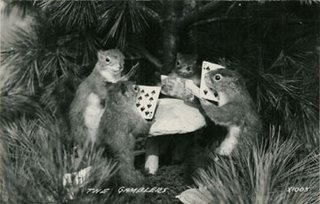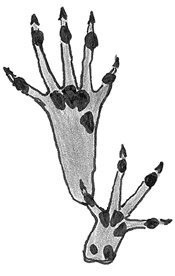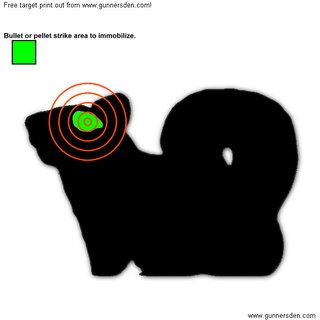I read
To take in these voices of unparalleled parry
Observations that make gods and politicians equally nervous
A man can argue anything in academia
What of selling your word box to the lucre entranced?
Those words were empty
The pen recoiled and the fingers declined to comment
Yes, one can defend any position for the tax of a tainted brow
But why besmirch the wicked?
They only revel in paint for the virgin oak
Virtue is not economically viable these days
Fuck Dick Cheney, I’ll hide in his laptop
But I dare not become a slave to resentment
Frederich Nietzsche wouldn’t hear of it
I wash myself with the words of the Friars
And hope that my pores may effervesce good will once more…
It has been to long friends. I have been bogged down but as of late I have remembered to care less. The sobering jab came from a global issues class. I was asked to debate the threat of global warming. It happened that I was assigned to take the positions that it’s no big deal or we aren’t the cause and was even put on a team. One of my team mates caused by mind to snap when he ended his discourse with the comment that global warming could perhaps be good because it may finally open up a northwest passage! You see why this statement offered in all seriousness caused me such distress…
More recently I was asked to write an essay with some bend that didn’t speak to me. The original task was meant to do with Mary Shelley’s Frankenstein but what I wrote ended it’s connection to the original assignment with that relation. Excuse the somewhat dry form but I made a realization after handing in the thing. If you replace companionship, fellowship, contact and the lot with love I think it says something I’m glad to say.
Much love to all
Chivo
The Consequences of Our Human Needs
At the heart of Mary Shelley’s Frankenstein exists a commentary on the human desire for companionship. Shelley displays the strength of humanity’s urge for meaningful contact in two ways: first, through the story of the monster and his horrific actions of vengeance directed at his creator for continually obstructing the monster’s chances at any sort of connection, and secondly, through Victor’s hate-driven reaction to the loss of all his prized comrades. Yet, one needs not look to monsters and mad scientists to find acute examples of loneliness and isolation. Even in the sea of faces found in an average community, one can easily observe several examples of forlorn souls seemingly forsaken to solitude. Unique circumstances conspire to create every sort of friendless fellow. Here, a better understanding of the consequences of the craving for intimate fellowship will be achieved via a careful comparison and analysis of three categories of examples where the driving force is the desire for companionship. Primarily, elements within Shelley’s novel which illustrate the powerful appetite for accompaniment will be drawn from. Some general modern behaviors that can be attributed to this desire will also be utilized. Finally, a plausible, relevant fictional human situation will be used to flush out the impact of mankind’s urge, and, in fact, need, for meaningful contact.
Man’s desire for companionship is so powerful that individuals partake in a wide range of seemingly absurd and even self-destructive activities in order to cope with feelings of lonesomeness. There are the lonely outers who can’t cease bitterly blaming the world for the frustration of empty intercourse and past disappointments long enough to strike up a conversation. Others turn to drugs for a deeper distraction, or feel that sexual adventure suffices well enough to at least temporarily fill the void. At times, individuals, whose attempts at forming some meaningful bond have been rebuffed, refuse to accept the rejection and continue to try to force their way into another person’s life. Today we label these lamentable characters “stalkers.” The social incompetence of Frankenstein’s monster due to his abandonment at birth and magnified by his wretched physical appearance led him to act in this way. Having already been rejected by the men in the village, the monster formed an unnatural, one-way bond with the cottagers. Yet, as the monster described to his creator, being “shut out from intercourse with them, except through means which I had obtained through stealth, when I was unseen and unknown, and which rather increased than satisfied the desire I had of becoming one among fellows” only furthered his status as a “miserable, unhappy wretch.” This dissatisfaction eventually led the monster to attempt forming a more substantial bond, and to the devastating denial of companionship by those he felt closest to. It is likely that the De Lacey family was saved from a bad end by Felix’s decision to depart with his loved ones and thereby disappear from the monster’s life. Yet, because of the deprival of even the one-way relationship, the need for revenge was ignited in the monster. Certainly, his thirst for friendship was little quenched by the conflagration of the evacuated cottage, but at least he had taken action, and for the first time felt empowered.
Since mankind’s urge to make a meaningful connection is so potent, attempts to replace feelings of rejection with empowerment can lead to much more severe consequences than burnt, abandoned dwellings. Modern Americans that are killed violently are most often victims of murderers whom feel that they have been, in some way, slighted by an individual that they care for, and wish to avenge the rejection of their most tender affections. Otherwise peaceful people will react most viciously when they feel abandoned, especially when there is a person that they can focus on as the cause of their feelings of loneliness. Their actions of vengeance are what the monster referred to as “vices [that] are the children of a forced solitude.”
Most people can easily understand and even relate to the impulse to violently avenge bruised feelings. But fear of rejection can compel some individuals to specifically seek out scenarios for interaction in which they can feel relatively sure that their attempt at a connection will not be refused. Volatile actions such as molestation and rape, which are often planned in a manner meant to shield the initiator from rejection, are propelled by their human desire to feel a connection. For whatever reason, the offender has been unable to achieve any meaningful contact under normal circumstances, and so, feels justified in unfairly demanding, and if necessary, forcing another’s cooperation in fulfilling his desires. It is certain that the monster chose to seize a child because he felt that there was less chance of rejection, and that he might finally form a friendship. Despite the monster’s discovery concerning the boy’s relation to his creator, the manner in which the lad’s life was extinguished, coupled with the monster’s account, confirm that the death of young William was more an attempt to stifle the boy’s hurtful rejection than an act of vengeance.
When considering Victor Frankenstein’s role in the story in terms of the human desire for companionship, it is important that one recalls that his life was already plentiful with loved ones. It would be a mistake to put that desire forth as a reason for the creation of the monster. The primary force behind the creation of the monster was Victor’s pursuit of personal perfection in his chosen field. In fact, Victor was so entirely distracted by his mission to master science that he neglected the loved ones that had fulfilled his temporarily forgotten need for fraternization. Indeed, Victor had become so absolutely lost in vigorously overcoming the scientific problems of reanimation that he did not even stop to consider the human problems of the being he was on the verge of creating. Because Victor had never regarded his goal as anything more than proof of his intelligence, he attached no human qualities to the entity he had brought to life and felt only abject terror when it began to stir. Furthermore, until the monster caused all of his companions to parish, Victor had never known a life of solitude, so he may have been particularly ill-suited to empathize with his creation and fathom the world it would face.
To better understand the impact of mankind’s longing for meaningful contact consider a fictional situation that unravels in ways which parallel Mary Shelley’s Frankenstein. At the core of this story is the fact that men often see women as beautiful objects that the acquisition of, in itself, can bring some measure of contentment. Victor did not consider the consequences of his scientific goal. Similarly, at times men do not stop for a moment to consider the ramifications of stresses put upon the emotions of young women rejected after sexual conquest. The success of both Victor’s scientific undertakings and a man’s sexual pursuit of a beautiful young woman inevitably result in unfortunate creatures whose crucial part in the completion of a goal does nothing to ensure their value to others upon the accomplishment of that goal.
The girl of this story need not begin as special in any way other than her physical sculpture. The male, on the other hand, should not necessarily be viewed as evil but rather simply as an individual who is so caught up in a goal that the morality of achieving the goal is put aside. Yet upon plucking the girl’s sexual innocence, he begins to understand that beyond momentary sexual relief, this attractive creature does nothing for him, and pulls away from her. She may implore him to remain with her and fulfill her need for companionship, but he has never really viewed her as a person, and as such, she can not meet his own need for meaningful contact. For the first time, he is immune to her unintentional sexual spell. She cannot control him and worse yet, his desire to be with her has vanished. Rejection forces her to painfully question her personal value and he is obviously the odious culprit responsible for her intense emotional turmoil.
Thus, the young protagonist leaves; disappears from her life, and for a considerable time, cuts himself away from all he has known. Life away suits him for a while, but eventually he is drawn back to his home and finds that beauty has become not only wicked, but destructive and spiteful. Furthermore, the travel-enriched and now more experienced man learns that his own younger brother is firmly entranced by the vindictive vixen’s sexual influence and in abject misery due to her torturous mistreatment. The remorseful sibling hopes to bring his love-struck brother to his senses before the miserable boy is ruined. Yet, his best attempts at driving the two apart are quelled. Only by confronting the girl can he hope to save his brother from further misery.
The older brother deems the embittered vixen as a soulless demon, yet she is no more evil than Frankenstein’s monster and if he sees a repugnant bitch, she is of his own creation. The monster claimed, “I am malicious because I am miserable.” Her defense would be no different. Yet, even though she is physically the opposite of the monster, she too can blame her appearance for the difficulty she has had in forming meaningful contact. A beautiful girl can become isolated in a way because people refuse to see beyond the physical beauty enough to recognize the lonely human inside that needs companionship just as any other person does. The outcome of this situation would depend entirely on the realizations and reactions of the opposing characters. The man can only hope to appeal to the girl by realizing for the first time what Victor called “duties of a creator towards his creature,” and in some way alleviating the pain that the girl has felt from never fulfilling her need for cherished fellowship. For the girl’s part, how she will proceed depends greatly on whether she can be appeased through sympathies and interchange. If the pain which the girl has felt due to the denial of her powerful desire for companionship kindled an inextinguishable hatred for men akin to the hatred which the monster felt for “any other being that wore the human form,” then the tale can end only with curses and woe.
Clearly, mankind’s craving for reciprocated meaningful bonds can lead to a wide range of consequences. From hate mail to suicides, we see that humans often react badly when they feel that their attempts at attaining a relationship to fulfill that longing have been rejected. Individuals can identify well enough with the yearning to evoke entire novels where the driving force behind plots is basically the desire for companionship. Perhaps most revealing and compelling is the way in which communities have utilized their understanding of how important companionship is for people. It would seem that convicted criminals who have already had their freedom taken from them can be threatened with little else. Yet penal systems around the world understand that the ultimate punishment is the deprival of any human contact, commonly known as solitary confinement. Indubitably, the human desire for companionship can act as potent motivation, yet ironically, it goes largely unnoticed, despite the fact that it permeates nearly every aspect of our lives and literature.















